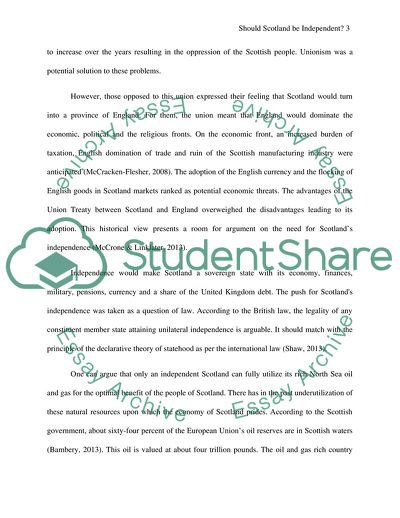Cite this document
(Should Scotland Be Independent Coursework Example | Topics and Well Written Essays - 1250 words, n.d.)
Should Scotland Be Independent Coursework Example | Topics and Well Written Essays - 1250 words. https://studentshare.org/politics/1867158-should-scotland-be-independent
Should Scotland Be Independent Coursework Example | Topics and Well Written Essays - 1250 words. https://studentshare.org/politics/1867158-should-scotland-be-independent
(Should Scotland Be Independent Coursework Example | Topics and Well Written Essays - 1250 Words)
Should Scotland Be Independent Coursework Example | Topics and Well Written Essays - 1250 Words. https://studentshare.org/politics/1867158-should-scotland-be-independent.
Should Scotland Be Independent Coursework Example | Topics and Well Written Essays - 1250 Words. https://studentshare.org/politics/1867158-should-scotland-be-independent.
“Should Scotland Be Independent Coursework Example | Topics and Well Written Essays - 1250 Words”. https://studentshare.org/politics/1867158-should-scotland-be-independent.


